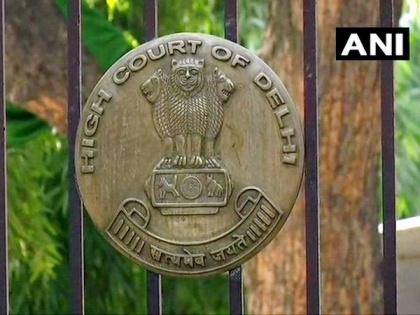Delhi HC to examine legal lacuna in CrPC regarding sentence to be awarded by Magistrates
By ANI | Published: April 30, 2023 02:38 PM2023-04-30T14:38:18+5:302023-04-30T14:40:07+5:30
New Delhi [India], April 30 : The Delhi High Court has admitted a plea filed by advocate and activist ...

Delhi HC to examine legal lacuna in CrPC regarding sentence to be awarded by Magistrates
New Delhi [India], April 30 : The Delhi High Court has admitted a plea filed by advocate and activist Amit Sahni praying to make heinous crimes, including unnatural sex and kidnapping of minors for begging, which entails imprisonment up to life term be tried by a sessions judge and not a magistrate.
Division Bench comprised of Chief Justice Satish Chand Sharma and Justice Subramonium Prasad on Friday observed that this issue requires arguments in detail and therefore the matter is admitted in a regular list and the same would be taken for detailed hearing in due course.
Sunil Dalal, senior advocate appearing for Sahni submitted that the punishment prescribed in the Indian Penal Code (IPC) for several heinous offences cannot be awarded by a magistrate as he or she is empowered to grant a sentence for a maximum period of up to three years only.
In 2019, the bench of justices Siddharth Mridul and Anu Malhotra sought responses from the ministries of Home Affairs and Law and Justice on a plea filed by Sahni. Justice Siddharth Mridul had orally observed that the court is surprised that this issue is not raised as yet.
The plea said that Schedule-I of the Code of Criminal Procedure, which makes sections 326 (voluntarily causing grievous hurt by dangerous weapons or means), 327(voluntarily causing hurt to extort property or to constrain to an illegal act), 363A (kidnapping or maiming a minor for purposes of begging), 377 (unnatural sex), 386 (extortion by putting a person in fear of death), 392 (robbery), 409 (criminal breach of trust by public servant), of the IPC 'triable by magistrate' is ultra-vires to Articles 14 and 21 of the Constitution.
These offences entail punishment ranging from 10 years to a life term. It sought the court to ask the authorities concerned to ponder over it and rectify the "inherent lacunae" in the procedural law by making it triable by the 'court of sessions' instead of the 'court of judicial magistrate of first class'.
It added that the magistrate could refer the matter to Chief Judicial Magistrate (CJM)/Chief Metropolitan Magistrate (CMM) under section 325 CrPC in case he or she feels that three years of punishment is not sufficient in any particular case. The CJM or CMM can award sentences up to seven years only and the object of awarding severe punishment which is provided for these offences does not meet, it said."
The procedural law is incapable to meet the ends of justice as prescribed in substantive law, that is, IPC, particularly regarding the aforesaid sections in the present context, the plea said.
The plea also stated that there is absolutely no provision enabling the Chief Judicial Magistrate or Chief Metropolitan Magistrate to refer any case to the court of sessions if it desires to inflict more than seven years as authorized by law.
"Further not only injustice is caused to the victims but the deterrence effect of providing higher sentence is also defeated," the petition said.
"The object of higher punishment in these sections cannot be achieved in the absence of provisions, which entitled the magistrate to award maximum sentence upon any accused convicted in any of the sections," it added.
Disclaimer: This post has been auto-published from an agency feed without any modifications to the text and has not been reviewed by an editor
Open in app